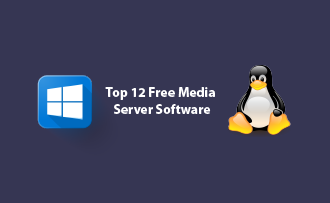How to choose a CMS in 2022: TOP 5 best CMS
12:19, 21.06.2022
You can develop websites in different ways, from manually writing code to collecting ready-made templates using designers. Now almost no one creates handwritten websites, because it is expensive and difficult. At the same time, with the help of designers, you can quickly build a good and stable website that will fully perform its functions. In this article, we will talk about the top five CMS that greatly simplify the creation, editing and management of website content.
WordPress
A free engine, the most popular platform in the world, on which approximately 40% of all websites in the world work. There are many reasons for such popularity:
- It does not need a license and is distributed free of charge.
- Simple and intuitive installation.
- A huge number of plugins that extend the standard functionality. As of 2022, there are about 55,000 different plugins, both paid and free, in the database of this CMS.
- Thousands of ready-made templates that can be used when creating a website. It also significantly speeds up and reduces the cost of development.
- A user-friendly interface, thought out to the smallest detail, for interaction with which you do not need to study multi-page manuals.
- Adaptive layout by default. If you want your website to display correctly on all devices, regardless of their diagonal and form factor, then CMS WordPress is what you need.
- SEO-orientation. This content management system supports plugins that simplify optimization and promotion, including tools for the introduction of keywords, meta-tagging.
- Extensive support by hosting providers - wherever you rent a VPS to host sites, in 99% of cases, the hoster will offer you to install WordPress.
There are also disadvantages, and the most important of them is problems with the compatibility of updates. Imagine that you have created a website, uploaded about 20-30 plugins to WP, configured everything and started working. After some time, an update for one of the plugins comes out - and problems may start, the site will crash or incorrectly display some elements. This is all easily stopped by disabling automatic updates, but still.
The second known problem is security. Due to the fact that the CMS is open source, it is much easier for attackers to find critical vulnerabilities that can be used to hack sites. Well, the popularity of WordPress also plays a cruel joke with it – there are many more people who want to find vulnerabilities in this CMS than those who would look for "holes" in some Modx.
The third and final drawback is the high requirements for server power. And the more plugins you connect, the higher the load will be.
Shopify
A fairly young CMS, released in 2006. It is popular, currently serving about 1,000,000 XNUMX online stores. This platform organically combines convenience and functionality, and also offers a number of critical advantages:
- convenience and ease of PayPal integration – for this reason, CMS Shopify is often used by E-Commerce sites;
- clean and not overloaded interface, which is a pleasure to work with;
- no transaction fees;
- a large selection of free adaptive templates – there are not as many of them as in WordPress, but still more than enough for most tasks;
- extensive tools for search engine optimization – from manual CNC formation to fine-tuning redirects;
- availability of qualified round-the-clock support;
- there are no limits on adding products in all tariff plans.
The big disadvantage is the high cost, which is not always justified considering the fact that there are free analogues that are almost as good as Shopify. In addition, the platform does not have many free templates, and their quality is noticeably worse than that of paid ones.
Bottom line – Shopify is well suited for creating online stores aimed at the Western consumer. CMS has a lot of built-in cool features that allow you to effectively increase sales, from sending messages to customers to generating discounts, but you will have to pay a lot for this, so we recommend that you think carefully about everything.
Joomla
Another popular engine written in PHP and JavaScript. It has been developed by Open Source Matters since 2005, that is, at the moment CMS Joomla has acquired an impressive number of interesting features and capabilities. Here are its advantages:
- easy and convenient installation;
- an open system – CMS does not contain any closed elements, so the source code can be edited in any way, adjusting everything to your needs;
- a huge database of components and modules that extend the standard functionality;
- it weighs a little and consumes a minimum of resources – this allows you to significantly save server resources when launching one large or many small sites;
- regular and high-quality updates that are thoroughly tested before release.
Among the disadvantages, it is worth noting the absence of an official support service and the mediocre elaboration of some elements of the system. However, the second disadvantage can be compensated by modules and extensions.
Drupal
An open source CMS preferred by experienced webmasters - this system is ideal for large sites and portals with a large amount of data and high traffic. It is used as a platform for news resources, when developing corporate websites and portals for government agencies. All this due to its extremely high security and reliability.
Separately, it is worth noting the presence of its own caching system, which greatly simplifies working with massive amounts of data. CMS Drupal has built-in tools to limit the load on the site, which also increases stability.
The main disadvantage of this content management system is its complexity – to learn how to work with the engine, you need to closely study the documentation and profile manuals.
Magento
The last engine from our top 5 best CMS of 2022. This is a commercial platform with solid functionality for E-Commerce:
- An impressive set of marketing tools, as well as analytics tools with which you can tangibly boost sales and organize mailings.
- A functional personal cabinet with ratings, feedback, wish-lists and other customer-friendly features.
- Handy tools for sorting your customers into groups.
- The option of differentiating access rights to the administrative panel for different employees.
- Detailed statistics and the generation of sales reports.
Magento - multilingual CMS with thought-out adaptive design for mobile devices. The system supports all popular currencies and at the same time has an extensive toolkit for SEO-promotion.
The only drawback is that the platform is intended primarily for Western commerce, so the implementation of all possible benefits for residents of Ukraine and former CIS countries will be impossible. Some modules and extensions are not flexible enough from this point of view, but in the case of the basic features of CMS, it does not play such a significant role.
Magento is constantly evolving and offers customers a rich selection of modules with which you can implement many interesting features. Most of them are paid, but this is fully compensated by their quality and stability.
That's where we end our selection of the best CMS of the year 2022. Thanks for your attention!


